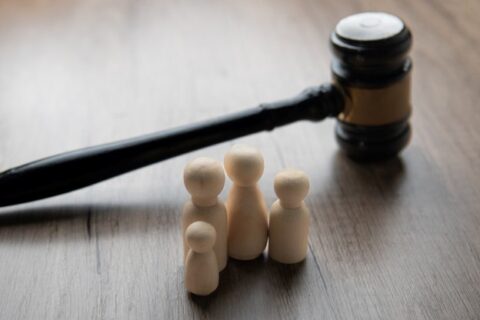Are the Courts Ready to Deal with Deepfake Evidence?
It’s your worst nightmare. You are accused of something terrible, and your ex says they have video proof that you did it. You know it can’t be true, but what can you do against a video?
This is increasingly becoming a reality in cases around the country and around the world. For example, at a British Parenting Time hearing last year, a woman claimed to have video evidence that her estranged husband was dangerous.
Luckily, experts were able to tell that the woman had faked that video using widely available software. This was a “cheapfake,” a relatively unsophisticated version of a faked digital file. A deepfake is a file that has been digitally manipulated to appear to be something it is not.
Hollywood has been leading the way with this technology in special effects. Studios have changed the apparent ages of actors and even morphed one actor’s face onto the body of another.
Unfortunately, there are other people involved in deepfakes. Last year, a video of House Speaker Nancy Pelosi was altered so that she appeared to be slurring her words. How long until convincing videos appear that make other people seem to be doing or saying something they never did?
Should All Videos Have to Be Authenticated? Or Just Questionable Ones?
Only a few courts have ruled on the admissibility of digital files as evidence since the advent of deepfakes. Unfortunately, they have ruled in opposite ways.
One court, for example, ruled that prosecutors should have to bring an expert or eyewitness to authenticate any image before it could be admitted as evidence. A different court later ruled that authentication is not always necessary.
Yet there are definitely bad actors who will use deepfake software to make things appear different than they really are. Although it is not common, some parents do falsely accuse their exes of misconduct in an attempt to gain an advantage in Parenting Time proceedings, as was seen in the British case.
Ironically, this leads to the problem of “the liar’s dividend.” Liars can contend that any digital evidence is questionable and put that evidence on trial.
The Courts Have Seen Fakery Before
Before you throw up your hands, be aware that courts have seen a lot of forgeries before.
“As long as there’s been evidence in court, there’s always been fakes,” notes one Stanford Law professor, “and the courts have come up with rules to deal with those as they come up and are aware that there’s always the possibility that somebody is trying to hoodwink them.”
Should courts begin proactively requiring authentication of all digital files? Or should lawyers have to challenge the authenticity of these files?


